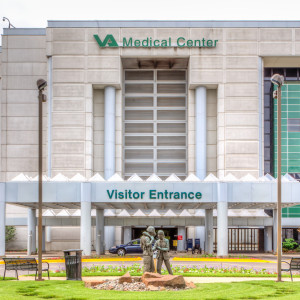Since the birth of our nation and the quest for independence and freedom, we have relied on brave men and women to carry out our nation’s national defense policies, often at great danger to their own bodies and minds. Eventually, our warriors transition to become Veterans and, because of their selfless service to the nation, we have promised them health care and disability support that first began before we were a nation, with the Pilgrims in 1636 and then the Continental Congress of 1776. Since then, in numerous declared wars and other engagements through four centuries, our nation has progressively strengthened its commitment to our Veterans, culminating in the establishment of the Veterans Administration in 1930 and numerous subsequent policies like the GI Bill signed in 1944.
This long legacy of Veterans’ care and benefits is a sacred obligation from a grateful nation made to the minority of citizens who, through conscription previously or volunteerism, put country before self. Our uniformed service members sometimes return to society less than whole. Others only return to their loved ones as a memory. Independence Day, Veterans Day or any other holiday we celebrate would not be possible without the often anonymous, selfless service and sacrifices displayed by the men and women of our seven uniformed services of the United States.
As a disabled Army Veteran myself, I received care through the VA after returning from combat. Years later as a medical student, I rotated through VA facilities to learn and provide care to Veterans, and later, as a university professor I provided care to Veterans and taught students and residents at VA facilities. In each experience, I always considered it a privilege to be around fellow Veterans and to hear their stories and learn more than medicine from them. They were a source of inspiration for me.
At times, over the years, the VA system has demonstrated excellence and best practices in many areas, to include their electronic medical records and implementation of quality standards. Unfortunately, more recently, we have heard a growing incidence of apparent repeated breaches of responsibility by people entrusted with this sacred obligation of caring for our fellow citizens we call Veterans. We are now learning that wait times for our Veterans’ care can be many months. Meanwhile, we witness and seek to prevent the great tragedy of Veterans’ suicide rates – which currently exceed the combat losses. This situation is unforgivable and requires an in-depth and rapid VA system assessment in order to hold those responsible accountable for their dereliction of duty and possible criminal actions.
In the interim, we must move forward expeditiously to clear the backlog of Veterans waiting for disability evaluation, expedite all care to those Veterans waiting for care and – once all Veterans are evaluated – provide a clear picture to Congress of the Veterans’ disease and economic burden the nation has inherited after two wars lasting over a decade. The immediate cost of war is often exceeded by the post-war cost – as we experienced after Vietnam and other wars. However, what the German philosopher Georg Hegel said two centuries ago and seems to be true today as well is, “what we learn from history is that we learn nothing from history.” We will be paying for these wars for over a half century more, since many of the Veterans who have returned less than whole physically and or psychologically are still in their youth today.
Some in leadership have suggested that privatizing the VA system would be a solution to the current crisis in the VA. Although well intended, I don’t believe that this option is a viable alternative other than for those Veterans who are geographically displaced. It is not uncommon that the average non-Veteran citizen has to wait weeks or longer for a primary care appointment, and specialty appointments can take months. In the interim, these non-Veteran patients go to an urgent care center or emergency room where they may wait many hours for any episodic care. In addition, the Veteran culture is unique and best understood in the context of other Veterans and in a system that is dedicated to Veterans. Shifting Veterans with complex physical or psychological problems to an unprepared civilian health care system that is already overburdened and has long wait times will only fragment their care and exacerbate the Veterans’ health care crisis.
However, there is a potential solution. Selected VA facilities nationally could remain open seven days a week, 24 hours a day until the backlog of Veterans’ evaluations and care is cleared. Additional clinical and support staffing could be provided by the U.S. Public Health Service Commissioned Corps and National Guard and Reserve Units activated for this purpose. As federal employees, once activated, their liability insurance is covered and licensure portability is not an issue.
By taking these straightforward and necessary steps, the public and our Veterans would see a clear and demonstrated exceptional response by the government, and my fellow Veterans would be pleased to be cared for by our men and women in uniform who bring to this endeavor a unique understanding of the experiences and concerns of our Veterans.
As our nation continues to painfully observe democracy unfolding in a hyper-partisan fashion, this is an opportunity for Congress to rise above all that they disagree on and come forward immediately, not only with support and funding that our Veterans have earned, deserve and have been promised – but also with a specific detailed plan to address the unmet needs of all our Veterans.
As I reflect on my time in combat and the troops I had the privilege to serve with, it is noteworthy that I never knew a political party affiliation for any of them. We were all there in harm’s way as Americans.
The nation now owes us a timely American solution.

